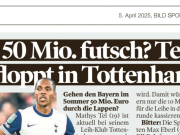Manchester United fans will remember the Ander Herrera circus at the end of the summer 2013 transfer window. Trying to get a quick deal done for the Spaniard, Manchester United were met by a flat refusal from Athletic Club Bilbao, who wouldn’t accept an offer equal to Herrera’s buyout clause.
That left Manchester United trying to find another way to do the deal quickly, but there simply wasn’t enough time to get around the situation and Herrera stayed where he was.
Pictures emerged from Spain of lawyers rushing through streets trying to help Manchester United get a deal done and there was much mockery. The law firm involved was Laffer, and Sport Witness spoke to them at the time, learning of a frustration from their side about the situation.
Laffer are experienced in dealing with Spanish buyout clauses, it was reported in Spain that Manchester United weren’t. Not only that, the new regime at the Premier League club were inexperienced in transfers, and received criticism in the Bilbao press.
Far from it being a bunch of lawyers and agents trying to get a slice of a deal and ultimately killing it, Laffer were said to have received an apology from Manchester United after the incident.
The next summer Manchester United were better prepared for battle and managed to sign Herrera without paying a huge sum of tax on top of the deal.
Often when Spanish buyout clauses are in the media, the threat of a huge tax bill is suggested. That comes from a player having to pay the amount himself if a club refuses to accept a transfer offer equal to the clause amount.
A buying club would then pay the money to the player and have to deal with the worry of an income tax bill of up to 48% on the amount. For someone like Antoine Griezmann that would make a transfer prohibitive given his clause is €100m.
There were ways around this, and clubs have succeeded in finding them before, but careful planning was needed. It’s not something a club could rock up and do on deadline day.
Last October brought a change. To put it in its simplest terms, Spain’s General Directorate of Taxes passed a resolution which meant a player wouldn’t be liable for tax in a situation such as that detailed above.
Expansion quote Jorge Pecourt, a partner at a specialist law firm, explaining the change: “From this moment on the transfer market has changed positively for buying clubs and negatively for those who were not willing to negotiate the transfer of their players, relying on the termination clause and the tax toll that came with their payment.”
The Spanish authorities wished to stop selling clubs using the tax threat to make transfers more complicated. After all, the whole point of compulsory buyout clauses is to give footballers a certain level of freedom.
A player paying his clause direct is now actually the route with least tax burden, because IVA (VAT) isn’t due on the fee either, the payment being exempt.
Should Manchester United make a move for Griezmann this summer, and be willing to pay his release clause, the new rules have made things a lot easier.
























